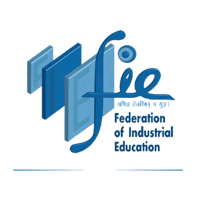
The New Education Policy (NEP) 2024-2025 marks a significant transformation in India’s educational landscape. Designed to meet the needs of the 21st century, the NEP aims to create a more holistic, flexible, and multidisciplinary education system that aligns with the needs of students and the community. This guide provides an in-depth look at the key aspects of NEP 2024-2025, highlighting its goals, major changes, and implications for students, teachers, and institutions.
Introduction to NEP 2024-2025
Objectives
The primary objectives of NEP 2024-2025 are to:
- Enhance Educational Quality: Improve the overall quality of education at all levels.
- Promote Equity and Inclusion: Ensure that all children, regardless of their background, have access to quality education.
- Foster Innovation and Flexibility: Encourage innovative teaching methods and flexible learning paths.
- Strengthen Digital Learning: Integrate technology and digital tools into the education system.
- Revamp Curriculum and Pedagogy: Make learning more enjoyable, less stressful, and more relevant to real-life applications.
Vision
The vision of NEP 2024-2025 is to transform India into a vibrant knowledge society and global knowledge superpower by providing high-quality education to all, thereby making India a hub of research and innovation.
Key Changes in School Education
Foundational Literacy and Numeracy
Achieving foundational literacy and numeracy for all students by Grade 3 is a cornerstone of the NEP. This will be achieved through:
- Early Childhood Care and Education (ECCE): Strengthening the Anganwadi system and pre-schools.
- National Mission on Foundational Literacy and Numeracy: Focused initiatives to ensure all children attain basic literacy and numeracy.
New Curricular Structure
The traditional 10+2 structure will be replaced with a flexible 5+3+3+4 design, corresponding to:
- Ages 3-8 years (Foundational Stage)
- Ages 8-11 years (Preparatory Stage)
- Ages 11-14 years (Middle Stage)
- Ages 14-18 years (Secondary Stage)
This structure aims to provide holistic development and promote multidisciplinary learning.
Reduced Curriculum Content
The curriculum will focus on core essentials, emphasizing key concepts and practical knowledge to:
- Reduce Rote Learning: Encourage understanding and application of knowledge.
- Integrate Vocational Education: Include vocational courses from Grade 6 onwards.
Assessment Reforms
High-stakes exams will be reformed to include:
- Formative Assessment: Regular, competency-based assessments.
- Summative Assessment: Easier board exams testing core competencies.
- PARAKH (Performance Assessment, Review, and Analysis of Knowledge for Holistic Development): A new national assessment center to guide and standardize testing.
Key Changes in Higher Education
Multidisciplinary Institutions
The NEP envisions large, multidisciplinary institutions with:
- Flexible Curricula: Allowing students to choose subjects across disciplines.
- Multiple Entry and Exit Options: Enabling students to earn certificates, diplomas, and degrees at different stages.
Undergraduate Education
Undergraduate programs will be more flexible and multidisciplinary, offering:
- Four-Year Programs: With research and entrepreneurship options.
- Multiple Exit Points: Certificates after 1 year, diplomas after 2 years, and a degree after 3 or 4 years.
Regulatory Reforms
Higher education will be overseen by a single regulator, the Higher Education Commission of India (HECI), with four verticals:
- National Higher Education Regulatory Council (NHERC): Regulation of institutions.
- National Accreditation Council (NAC): Accreditation of institutions.
- Higher Education Grants Council (HEGC): Funding and financing.
- General Education Council (GEC): Academic standards.
Online and Digital Education
To enhance digital learning, the NEP proposes:
- Virtual Labs: Access to digital and online resources.
- National Educational Technology Forum (NETF): Sharing best practices and developing technology.
- Digital Infrastructure: Improving internet connectivity and access to digital devices.
Teacher Education and Training
Improved Teacher Education
The NEP aims to improve teacher education through:
- Integrated B.Ed Programs: Four-year integrated programs for teacher education.
- Continuous Professional Development: Regular training and professional development opportunities for teachers.
Recruitment and Career Path
Teachers will be recruited through a rigorous and transparent process, with a clear career path ensuring:
- Professional Standards: High standards for teaching and teacher performance.
- Merit-Based Promotions: Transparent and merit-based career advancement.
Inclusive and Equitable Education
Special Focus on Marginalized Groups
The NEP emphasizes inclusive education by focusing on:
- Gender-Inclusive Education: Special funds and schemes to promote girls' education.
- Education for Disabled Students: Accessible and inclusive infrastructure and learning materials.
Adult Education
The policy also addresses the needs of adult learners through:
- Adult Literacy Programs: Targeting functional literacy and vocational skills.
- Life-Long Learning: Promoting continuous education and skill development.
Promoting Indian Languages
Multilingualism
The NEP promotes multilingualism by emphasizing the use of the mother tongue or local language as the medium of instruction at least until Grade 5, and ensuring students learn three languages from the foundational stage.
Preservation of Cultural Heritage
The policy encourages the preservation of cultural heritage by promoting classical languages like Sanskrit and supporting the development and use of regional languages in education.
Governance and Leadership
Autonomy and Accountability
The NEP emphasizes the autonomy of educational institutions while holding them accountable for quality and outcomes, including:
- Academic and Administrative Autonomy: For institutions to innovate and adapt to changing needs.
- Transparent Governance: Ensuring transparency in operations and decision-making.
Role of School Complexes
Schools will be organized into complexes or clusters to:
- Share Resources: Optimize the use of resources and infrastructure.
- Promote Collaboration: Facilitate collaborative teaching and learning practices.
Funding and Implementation
Increased Investment
The policy calls for:
- Increased Public Investment: Targeting 6% of GDP for education.
- Private Participation: Encouraging private sector participation in education.
Phased Implementation
The NEP will be implemented in phases with careful planning to ensure smooth transitions and effective outcomes, including detailed action plans at national, state, and institutional levels, and continuous monitoring and evaluation to ensure the policy is on track and making the desired impact.
The NEP 2024-2025 is poised to revolutionize the Indian education system, making it more inclusive, innovative, and aligned with global standards, ultimately transforming India into a global knowledge superpower.




